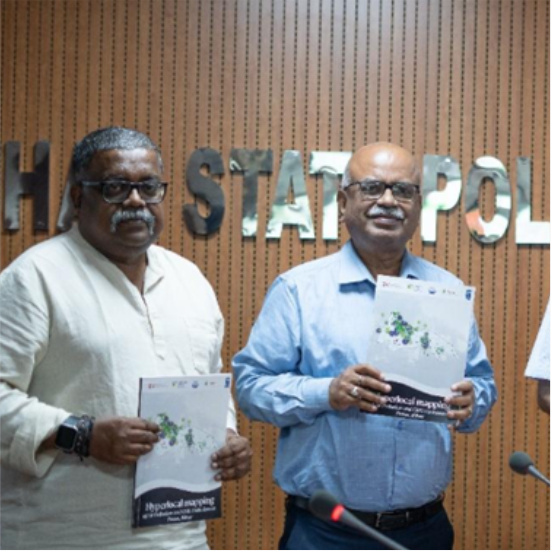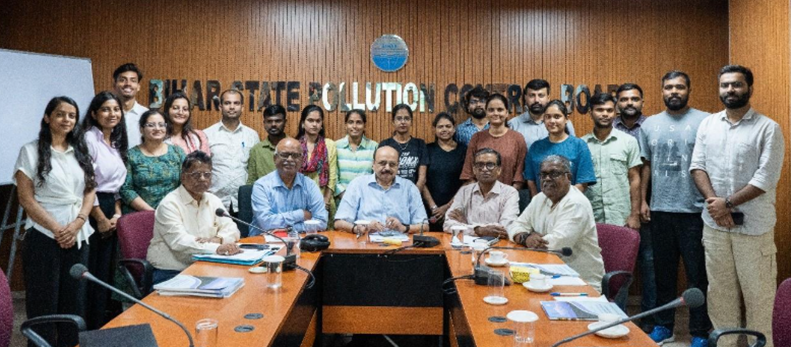
Citizen scientists map Patna’s air, driving data-led climate action.
#citizenscience

Publication release on hyperlocal mapping by Dr. Soumen Maity and Bihar State Pollution Control Board officials
On 7 August 2025, Development Alternatives (DA), in collaboration with the Bihar State Pollution Control Board (BSPCB), convened a Citizen Scientists’ Meet in Patna to celebrate the collective efforts of the Citizen Scientists who played a pivotal role in the Hyperlocal Mapping of Air Pollution and GHG Emissions in India project.
Launched in June 2024 with support from UNDP India, the initiative aimed to develop a detailed understanding of Patna’s hyperlocal air quality using IoT-based, low-cost sensor technology and citizen science. A network of 50 sensors was deployed across the city, continuously tracking key pollutants including PM₂.₅, PM₁₀, CO, CO₂, NO₂, and CH4. Over a span of one year, this setup generated an impressive 80 million data points.
The event was chaired by Dr. D.K. Shukla, Chairman, BSPCB, who emphasised that community-led monitoring can transform raw data into meaningful action for cleaner cities. Initiatives like this, he noted, which combine scientific tools with local knowledge, are vital for generating evidence-based insights on air quality. The real challenge, he added, lies in translating these insights into concrete action.

Publication release on hyperlocal mapping by Dr. Soumen Maity and Bihar State Pollution Control Board officials
Dr. Soumen Maity, DA, and Mr. Shubham Tandon, UNDP-India, shared insights from the year-long journey, highlighting how the active participation of citizen scientists not only enriched the dataset but also demonstrated the transformative potential of community engagement in environmental monitoring.
Dr. Akshay Zadgaonkar, SEEDS India, shared the practical use cases and policy insights based on the data analysed from the project.
The event also featured personal reflections from citizen scientists, who described how access to hyperlocal data informed their everyday decisions. One participant explained how he began periodic sprinkling of water to reduce dust emissions after observing sharp spikes in PM levels around his construction site. Another citizen scientist recounted how she adjusted her daily travel routes and timings after her sensor readings alerted her to pollution peaks in different parts of the city. These experiences vividly illustrated how citizen-led science can inspire immediate behavioral shifts, alongside its value for policy and governance.
A highlight of the event was the certificate distribution ceremony, where citizen scientists were formally recognised for their contributions. Their dedication and participation were celebrated as central to the project’s success, demonstrating that community-led air quality monitoring is not only feasible but also impactful.
The day’s discussions concluded with a strong consensus, hyperlocal monitoring frameworks must be scaled up and institutionalised across regions, embedding low-cost air quality monitoring sensors and citizen participation as a cornerstone of air quality monitoring. As Patna’s experience has shown, such approaches offer both scientific robustness and social legitimacy, marking an important step toward healthier, more breathable urban environments.